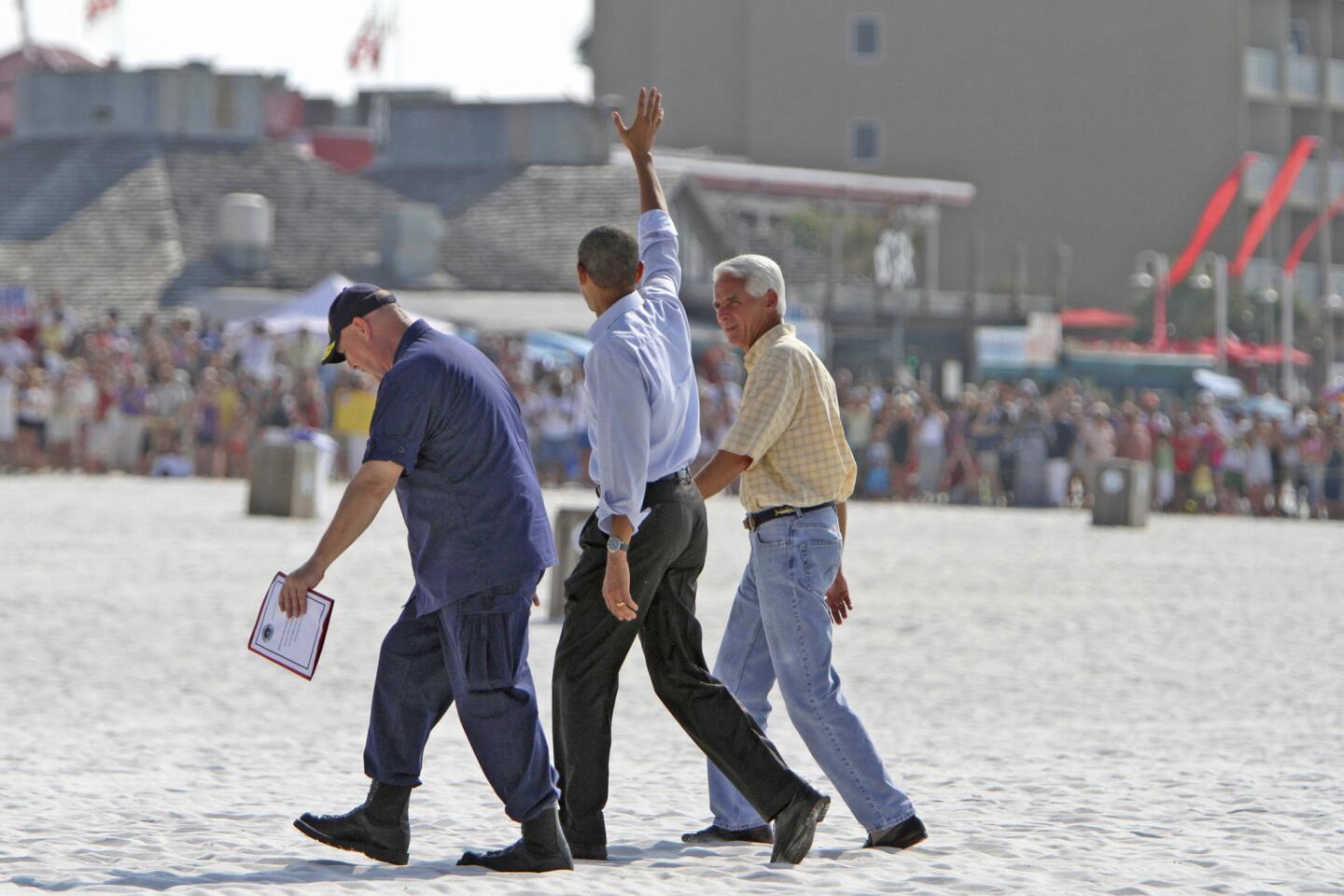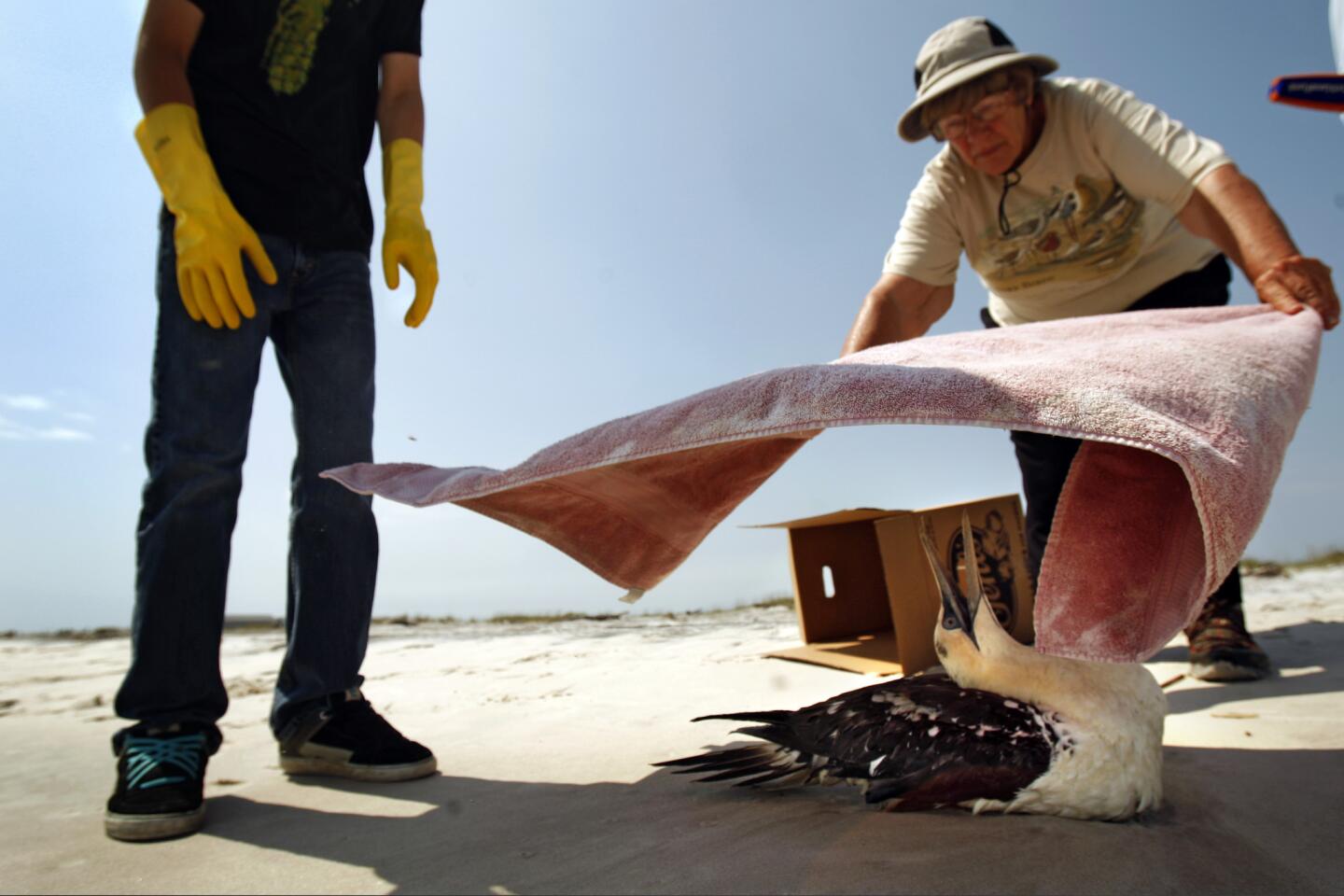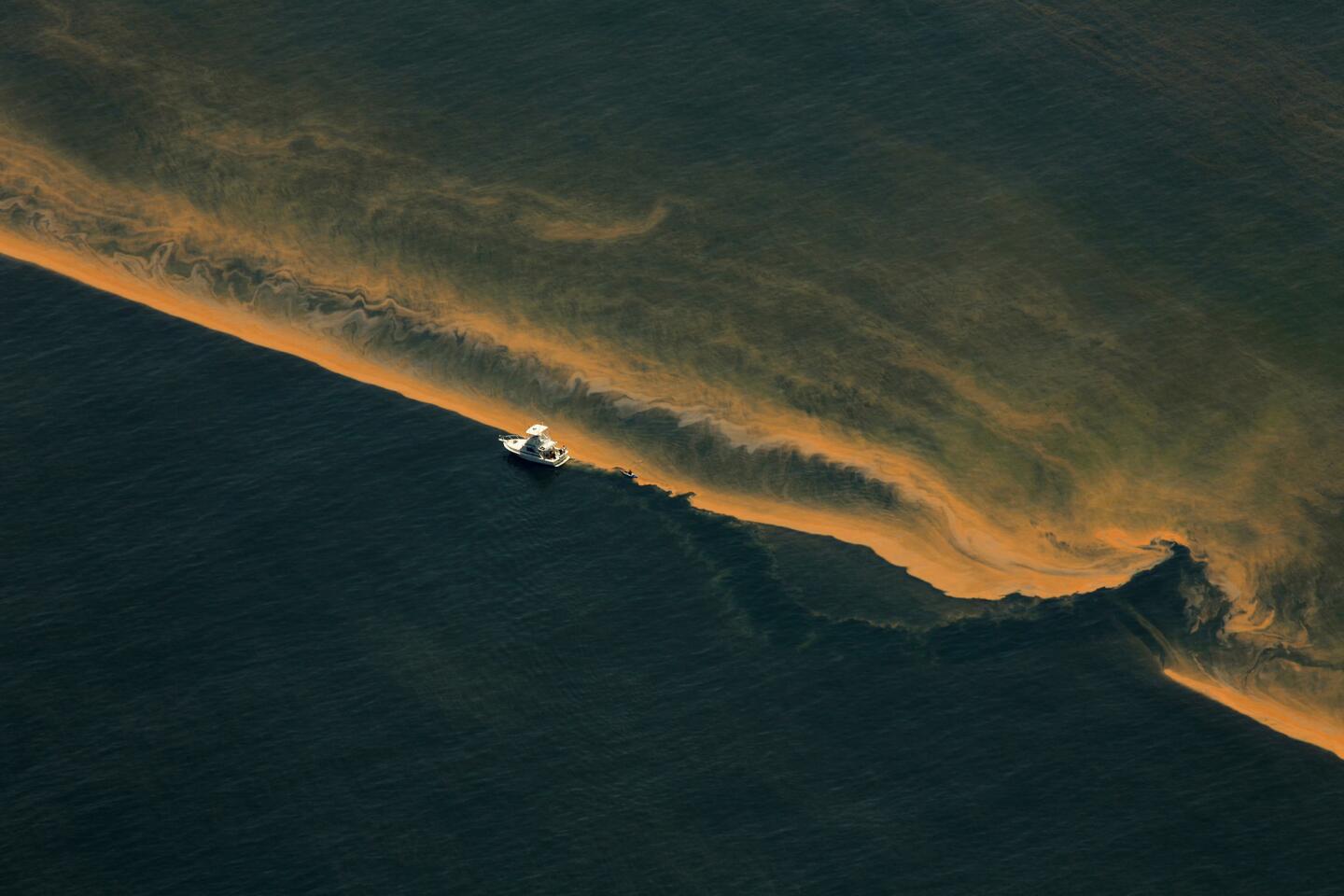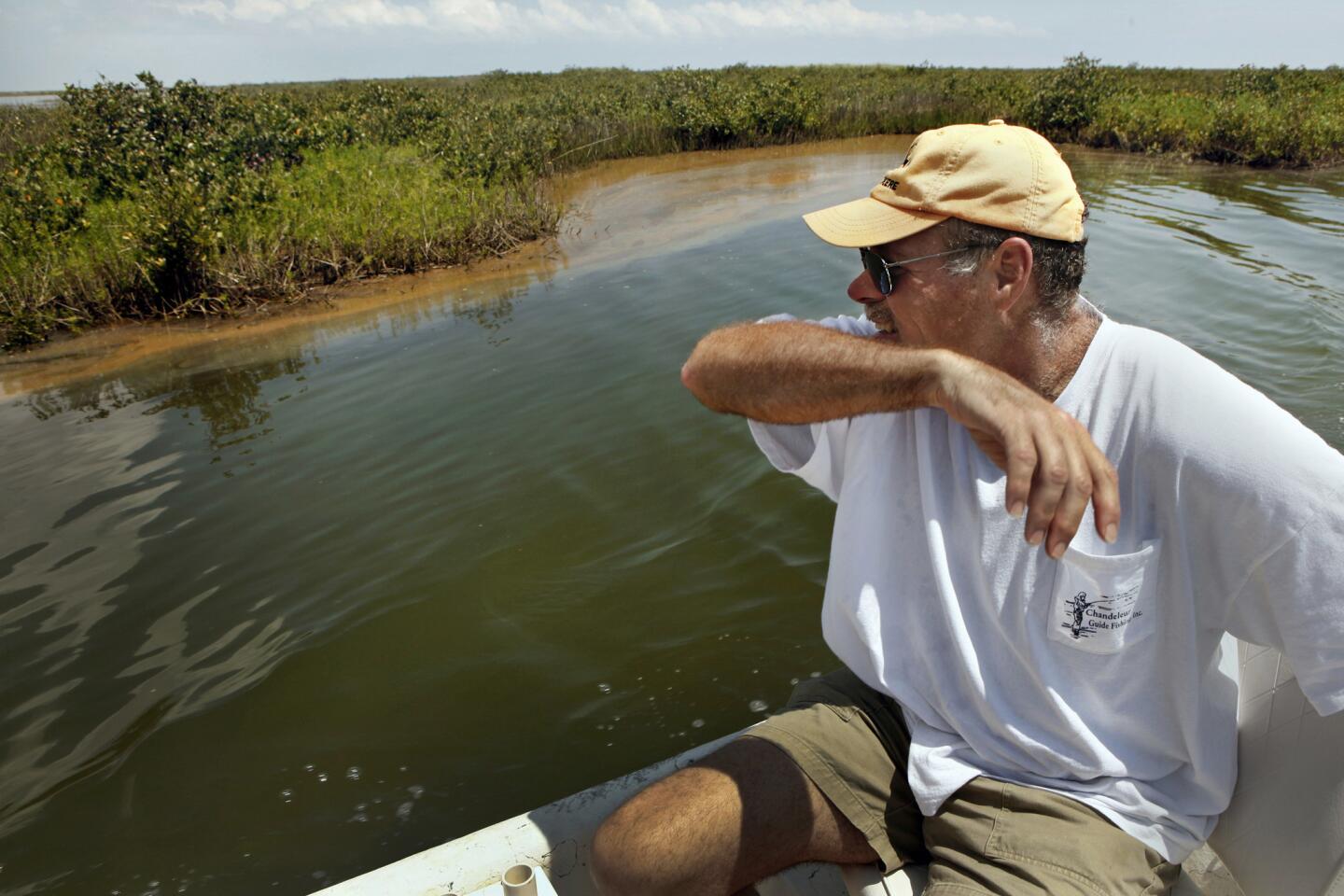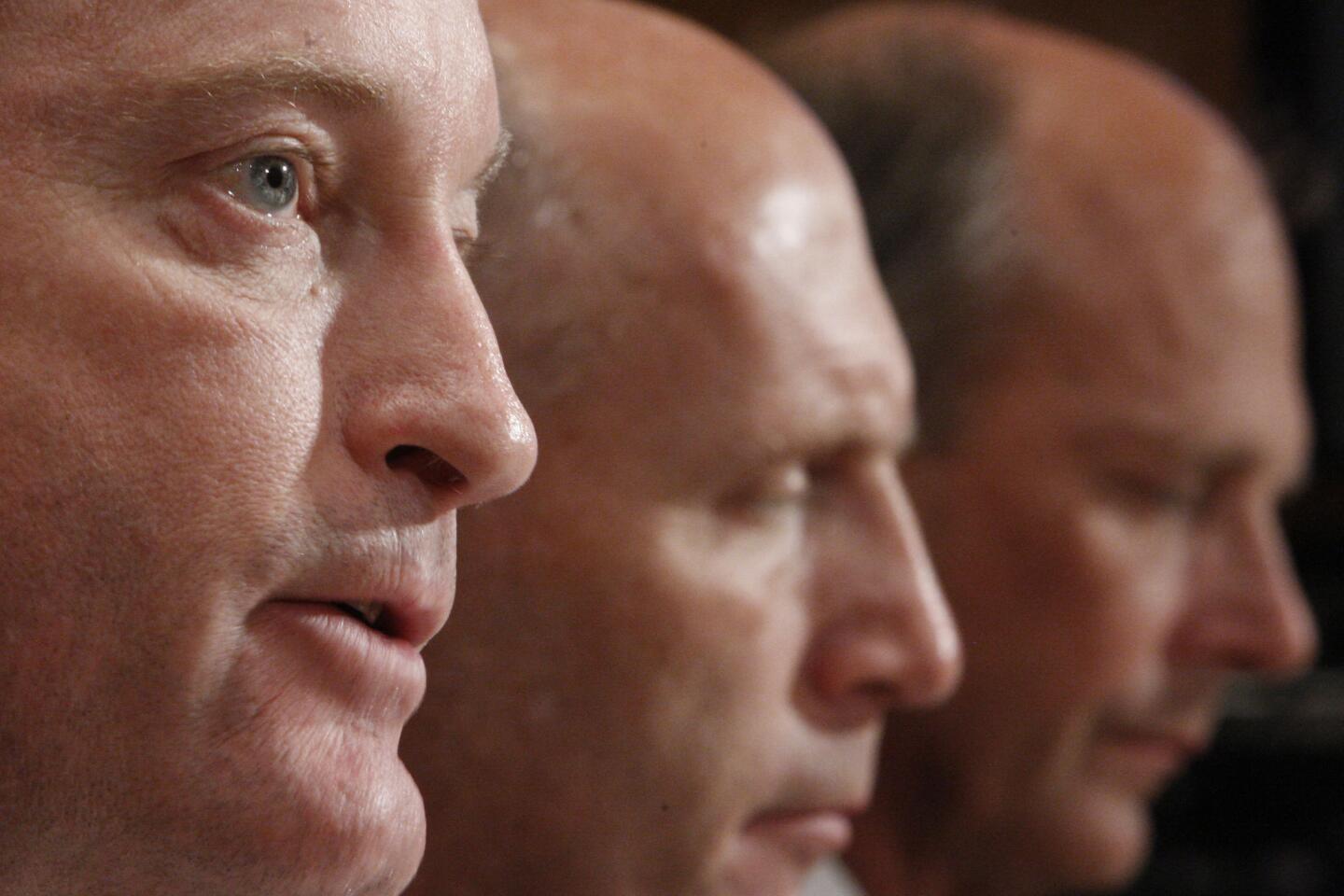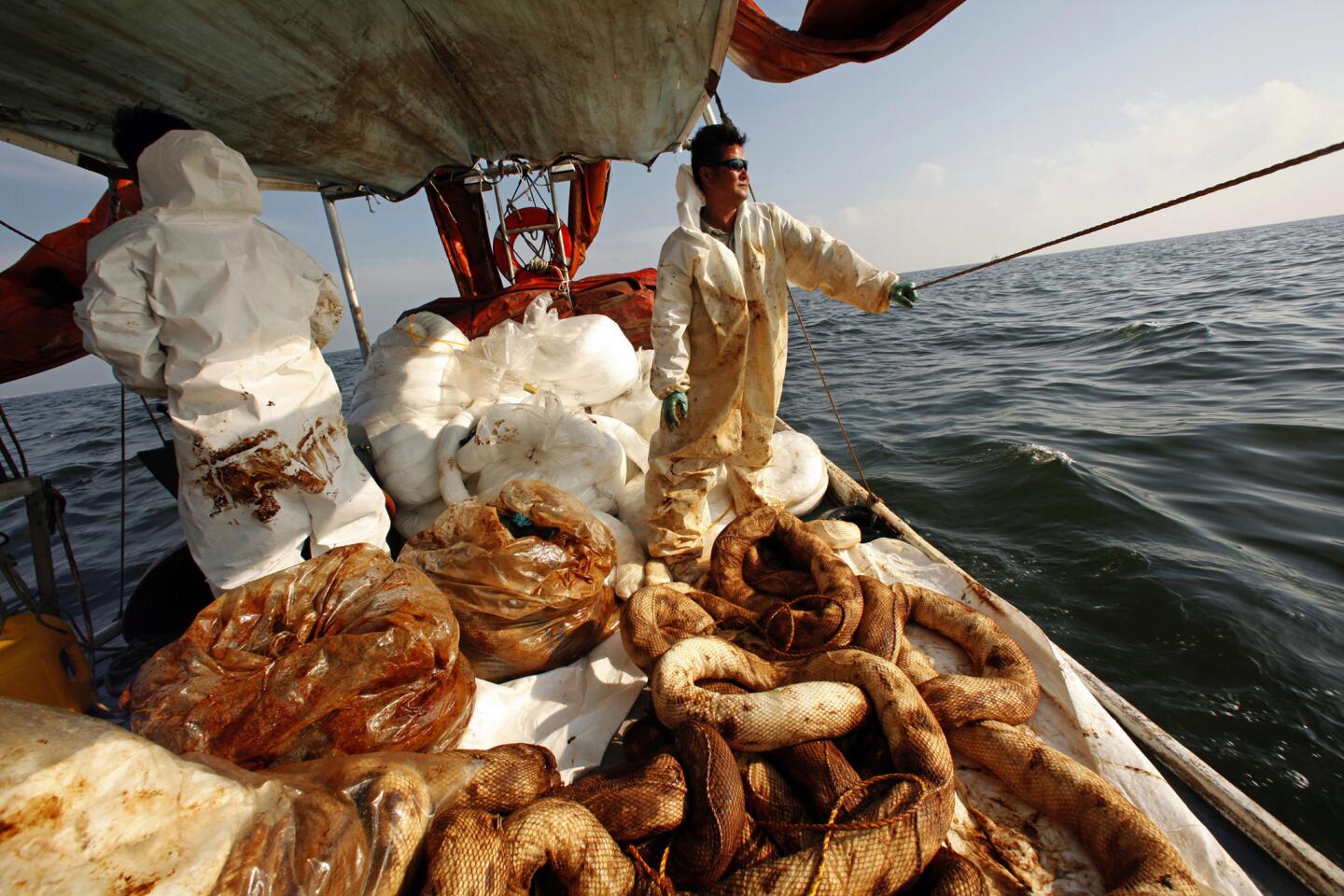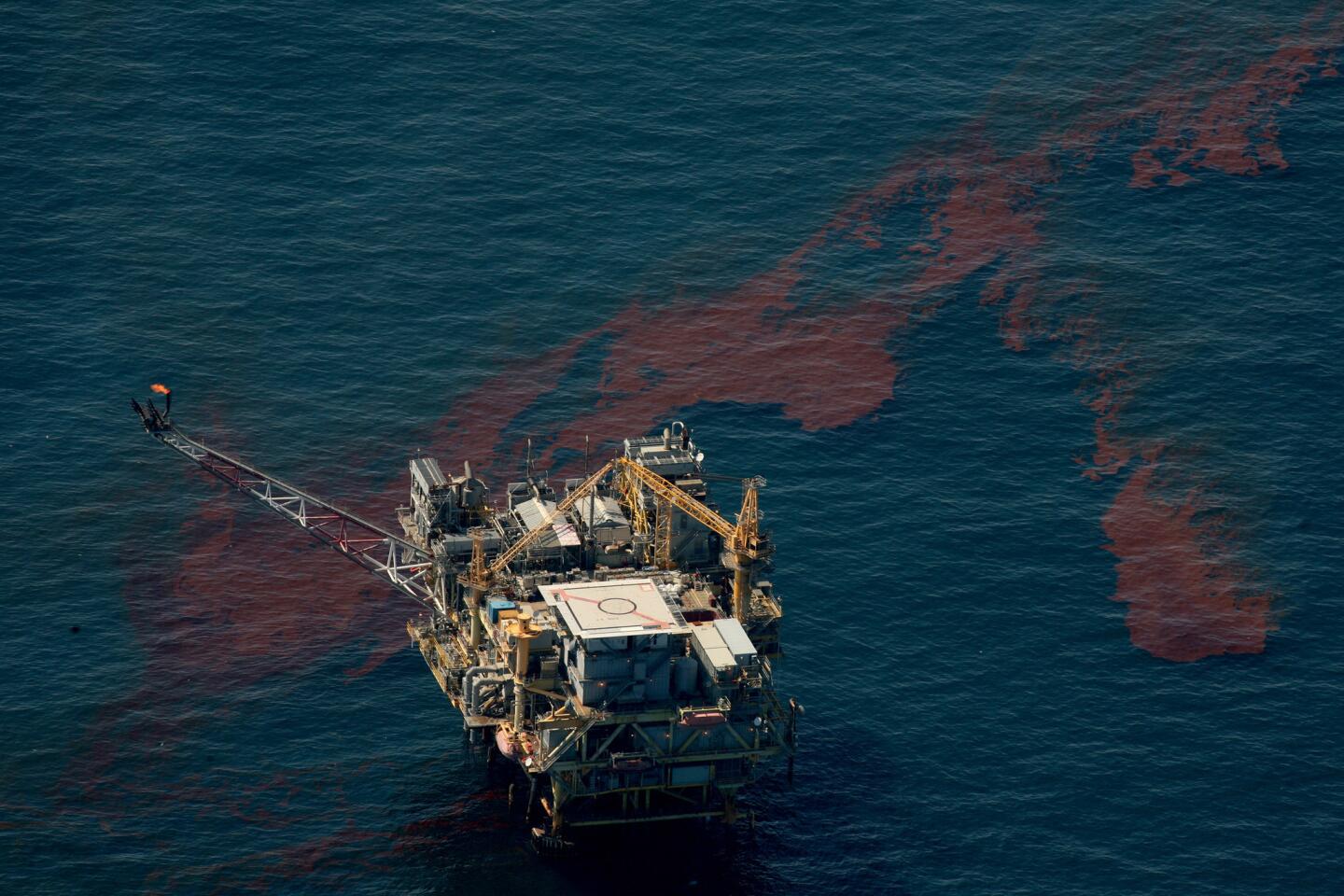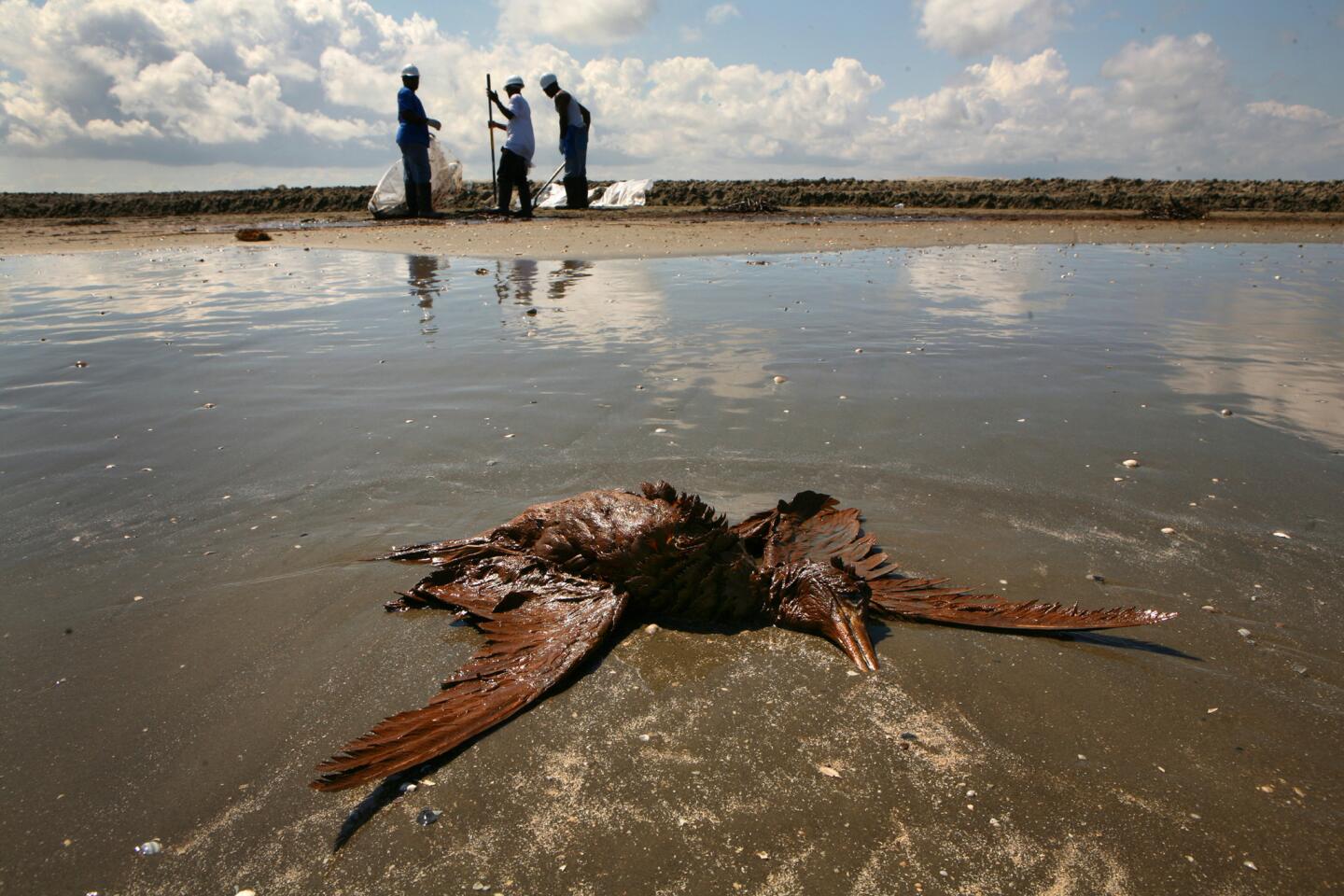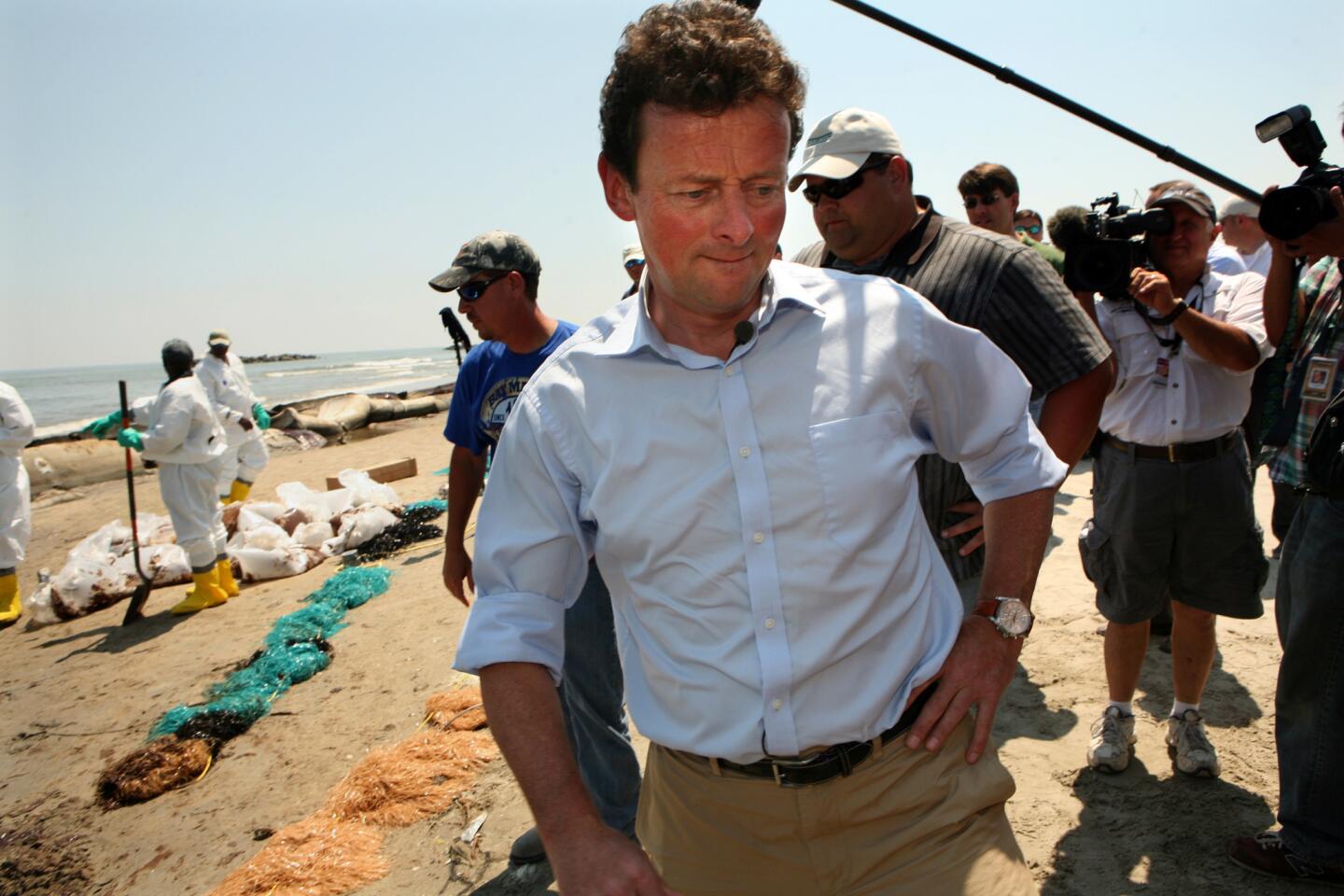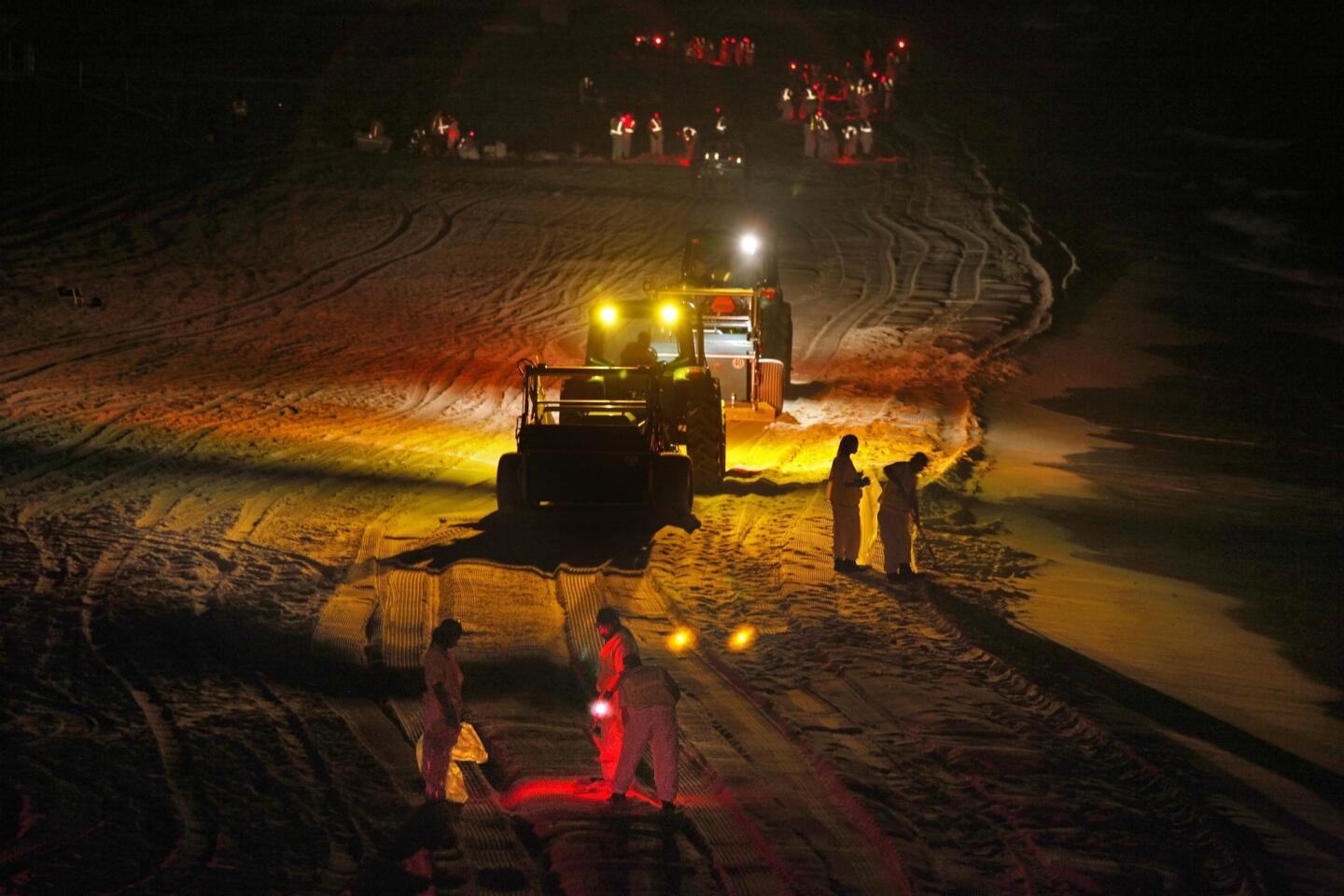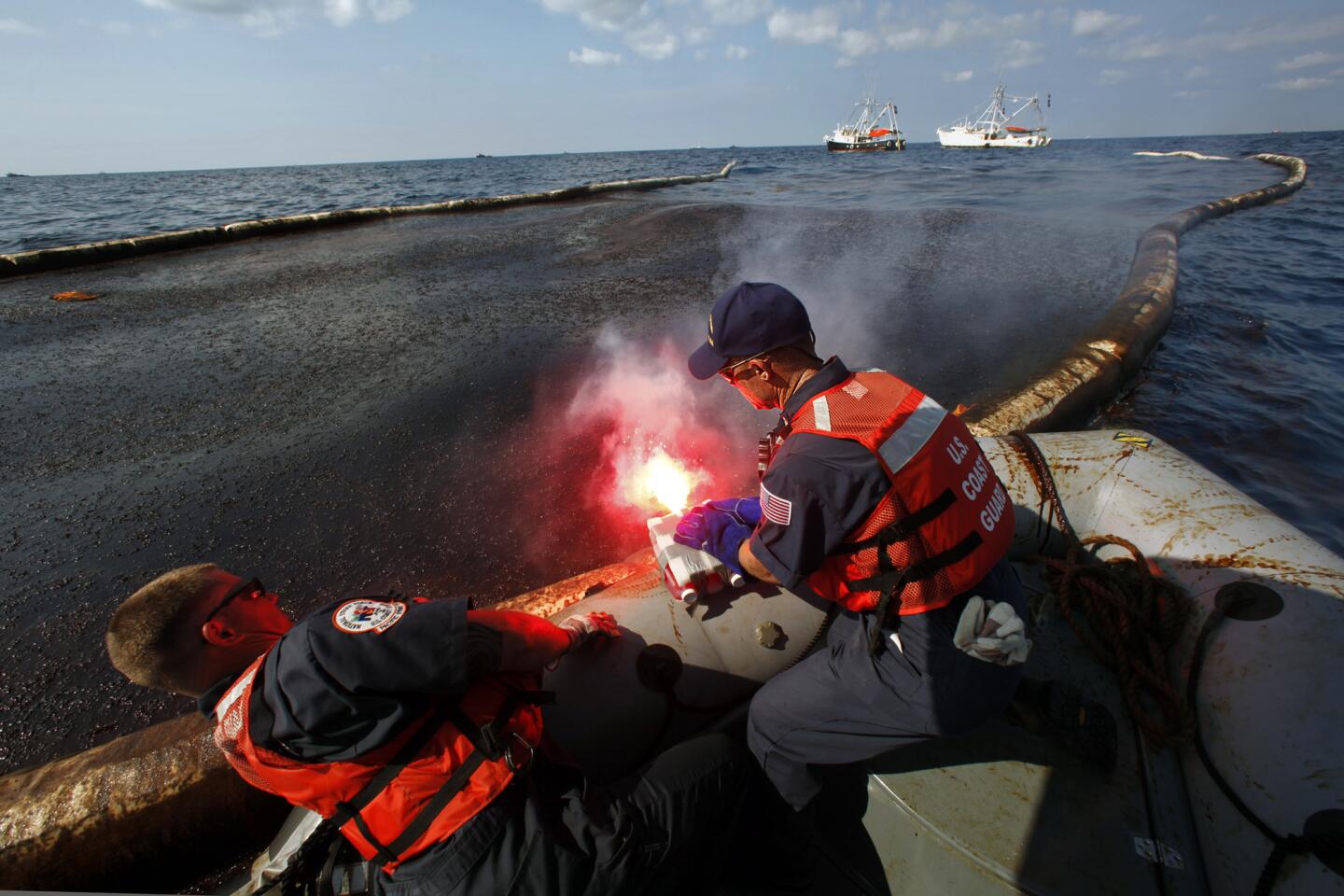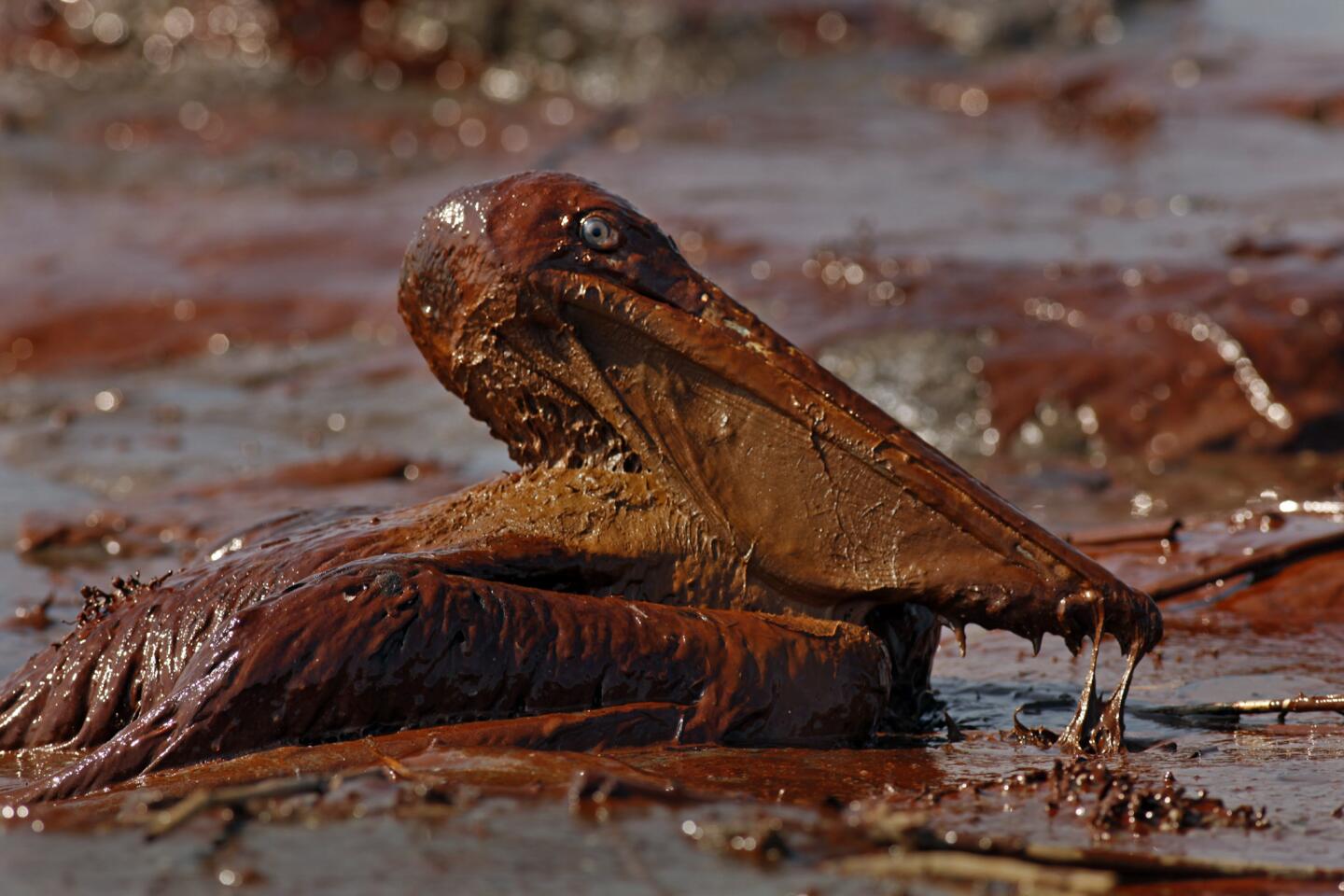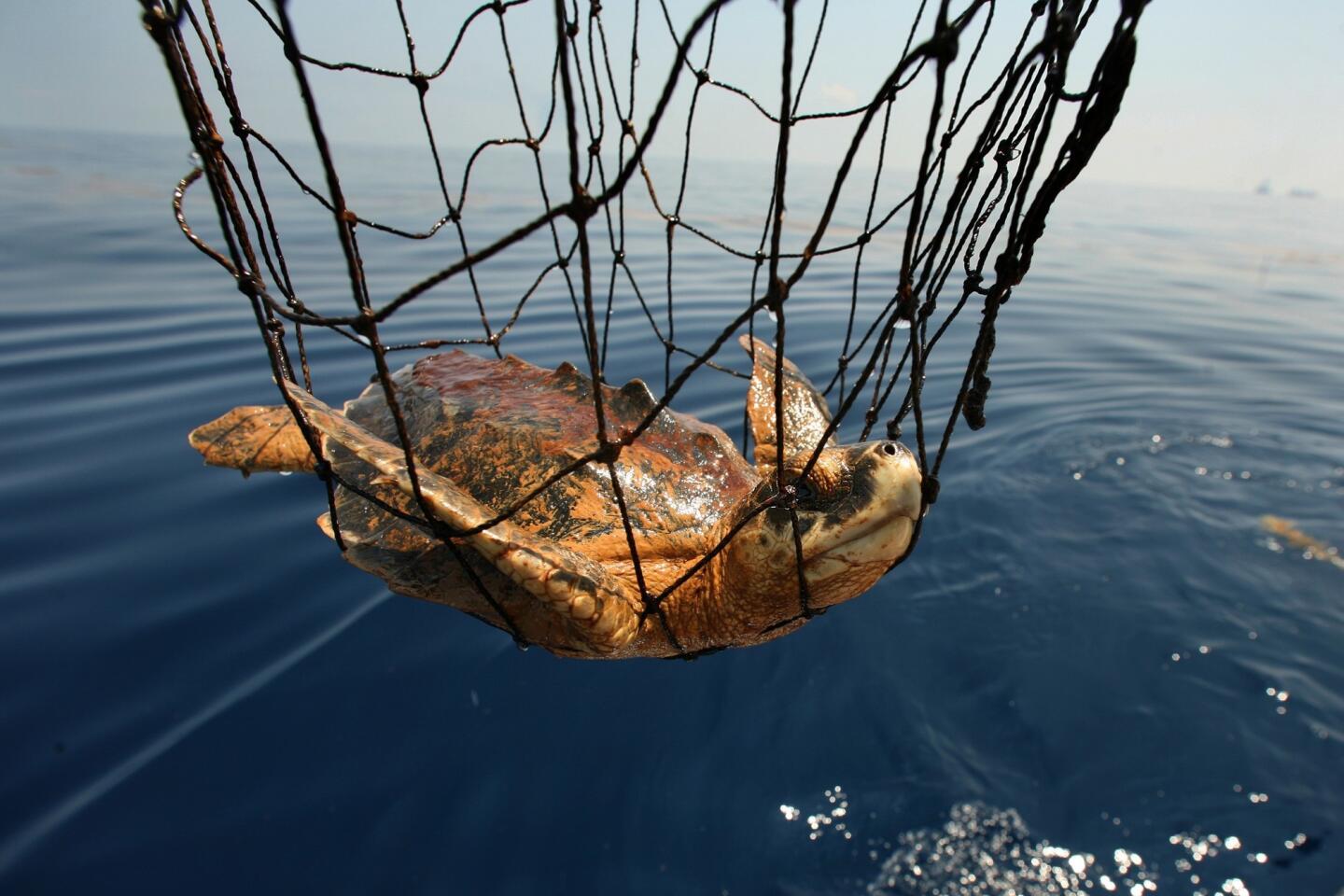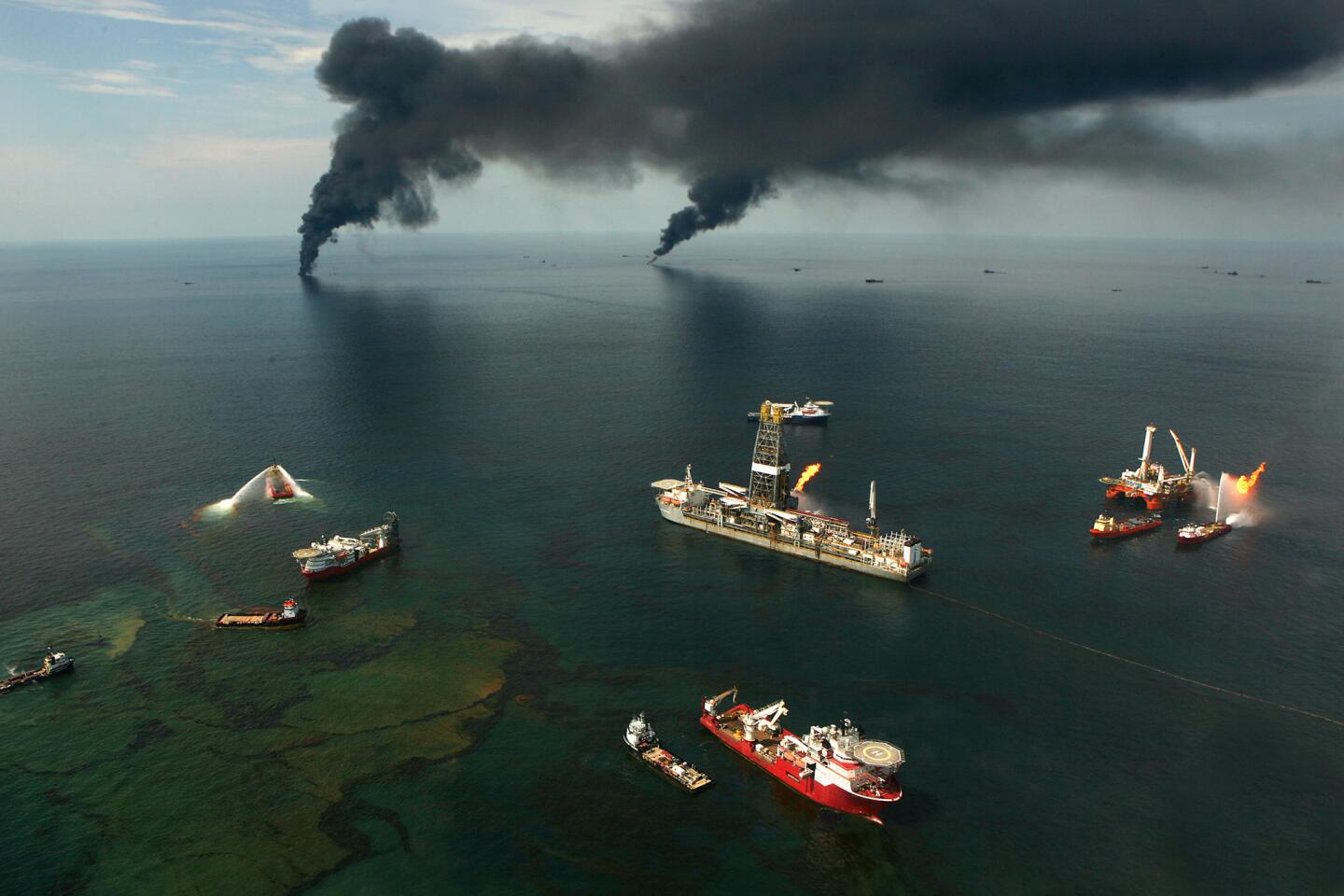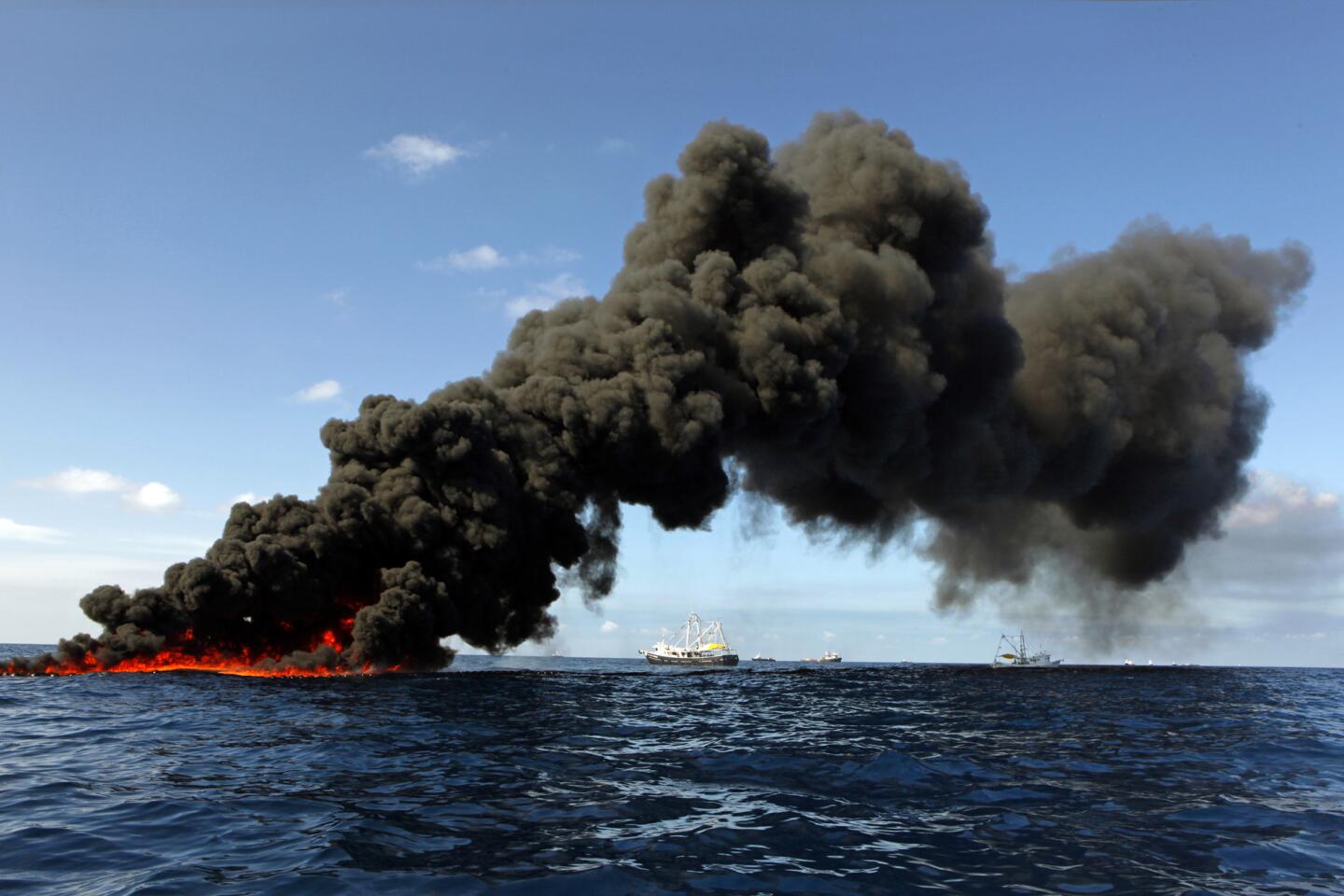How the government got BP to pay the biggest environmental penalty in history
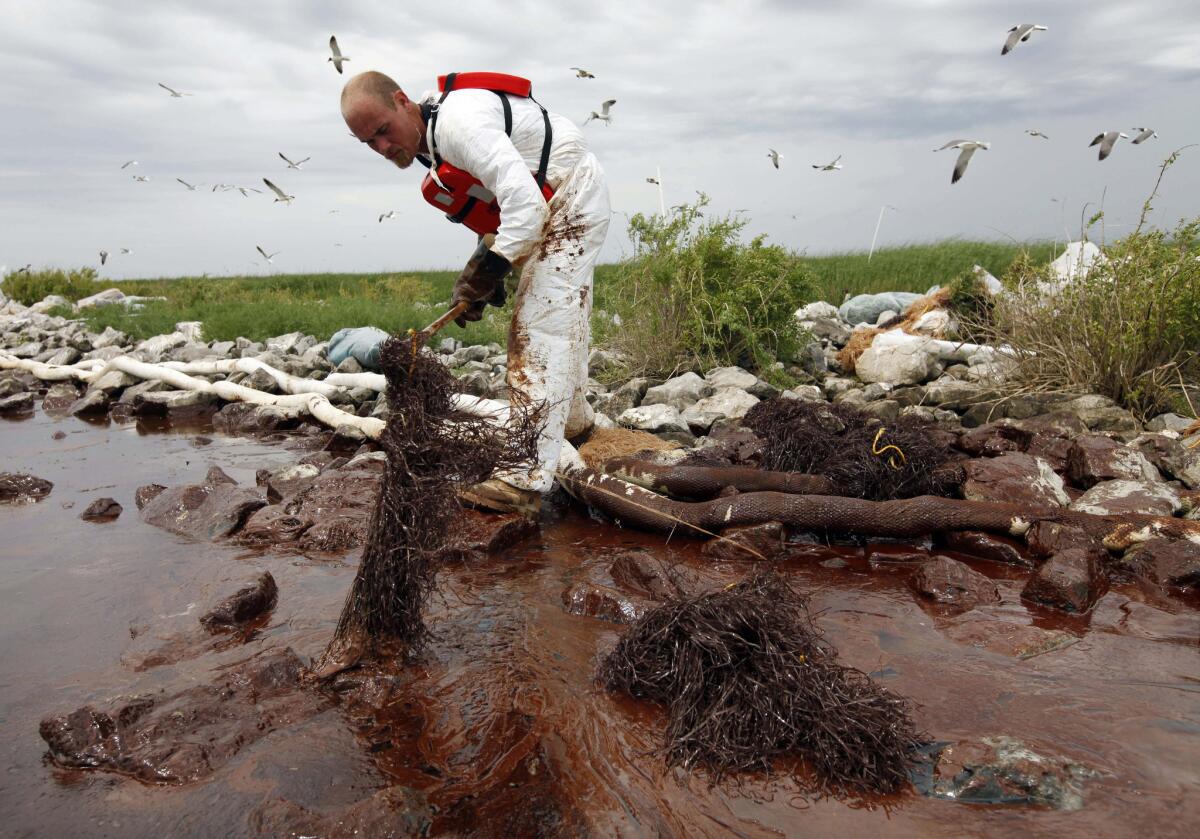
The first order of business when John Cruden took over as the Justice Department’s top environmental lawyer was holding BP financially accountable for the 2010 Deepwater Horizon spill that fouled the Gulf of Mexico with millions of barrels of oil.
The best way to do that, Cruden believed, was to settle the costly and contentious legal fight between his department and the oil giant. But the former Green Beret was worried about entering negotiations with a weak hand, particularly after BP had rebuffed a sizable 2013 deal.
So when a court-appointed mediator suggested reaching out to BP to reopen talks, Cruden surprised the respected magistrate judge by demurring.
“They can come to me,” he said, smiling confidently.
It was a risky, audacious move -- and it worked. What followed was the largest environmental settlement in the Justice Department’s history.
With the $20.8-billion deal formally approved last month by a federal judge in New Orleans, Cruden, other Justice Department officials and independent mediators are discussing for the first time how they nailed down an agreement that could become the model for future environmental disasters.
The settlement is also a professional capstone of sorts for Cruden, a career Justice Department environmental attorney who had overseen some of the division’s biggest cases, including the Exxon Valdez oil spill, toxic dumping at Love Canal, N.Y., and a $1-billion interim settlement with BP to fund restoration projects in the Gulf. Cruden had retired from the department in 2011, but was coaxed by the White House to return, and in January 2015, he took over as the assistant attorney general of the environment and natural resources division.
Fortunately for Cruden, he returned just as the BP civil lawsuit was about to enter the penalty phase, after which U.S. District Judge Carl Barbier would decide how big a fine to levy on the company. The judge, based in New Orleans, had ruled mostly in the government’s favor, including finding that BP had been grossly negligent in the spill.
By April, two months after the conclusion of the trial’s penalty phase and three months after Cruden rejected the mediator’s invitation to restart talks, the assistant attorney general received an unexpected call from former FBI Director Louis Freeh.
Freeh had been brought into the case as a “special master” to help oversee claims. He told Cruden he had been approached by BP, and they were interested in discussing a settlement.
A BP spokesman declined to comment for this article.
Cruden and his top deputy, Bruce Gelber, met May 1 with BP’s chief executive, Bob Dudley, and chief financial officer, Brian Gilvary, at Freeh’s law offices in Washington. During an informal session, each side sized up the other.
“It was kind of bit like when you have two young elementary school kids playing in a park and they are parallel playing, not really playing with each other,” Cruden said.
Cruden told the executives that the Justice Department would not even reenter negotiations unless the starting point for total damages was a minimum of $10 billion, though he also made it clear there was no way the government would accept that amount.
What Cruden wanted was a sign of good faith that he could take back to the five federal agencies he was representing and the Gulf states suing the oil conglomerate. He knew government lawyers were wary after BP rejected their 2013 offer, which media reports pegged as close to $16 billion.
When BP agreed, negotiations began in earnest. The first session was in New Orleans on May 21, and included Cruden, Gelber, BP’s chief financial officer and representatives from several federal agencies and the Gulf states. Cruden, drawing on his experience in the Army, made a point of trying to keep these early meetings small and focused.
A graduate of West Point, Cruden had served as a Green Beret in Vietnam before earning his law degree and becoming an Army attorney. Though 70 and affable, Cruden had a sturdy build that conveyed a military bearing.
“I approached this in a linear military fashion,” he said.
Though Cruden said the BP negotiations were similar to others he had overseen, the amount of money at stake was unprecedented. At one point, drawing on current events in Europe, a BP executive turned to Cruden and quipped: “What you just asked me to do would retire the Greek debt.”
“Why is that relevant?” Cruden replied. Though the talks seemed to be progressing, Cruden remained dubious they could reach a deal. First, he said, resolving the civil penalty was only part of the process. The Justice Department and BP also had to agree to what was expected to be a large sum to settle claims resulting from natural resource damages, separate from the civil fine.
The federal government had not yet completed the necessary studies to figure out that amount. “I was pretty comfortable with the penalty figure,” Cruden said. “The natural resource damages were another story. What do you ask for when you haven’t put on your case?” He decided to ask for what he thought would be the maximum.
Second, BP executives said they would only settle with the Justice Department if it could also reach agreements with hundreds of states, municipalities and local government entities that claimed they had suffered economic losses resulting from the spill. To Cruden, that seemed like a Sisyphean task.
See more of our top stories on Facebook >>
Finally, negotiations were just plain difficult. “We are taking meeting after meeting, day after day, week after week, draft after draft. Nothing was given away by either side, I can assure you of that,” said Sally Shushan, the magistrate judge who initially asked Cruden if he wanted to reenter negotiations. “I have the bruises and headaches to prove it.”
Then in early June, Judge Barbier cancelled a status conference and said he would only reschedule it after having issued his order on the penalties. Both sides took that to be a sign the judge was getting close to issuing a ruling that would instantly negate the negotiations.
“Time was running out,” said Steve O’Rourke, the Justice Department’s lead attorney on the civil case.
Talks quickened, became more detailed and creative. BP executives, for example, were concerned about being held liable down the road for unexpected environmental problems. The oil company was aware that the Justice Department had taken steps in 2006 to seek additional funds from ExxonMobil for damage caused by the 1989 oil spill in Alaska’s Prince William Sound.
A final compromise was reached: BP would set aside $700 million to be paid in 15 years, with interest, and the government agreed not to seek additional funds in the future.
By late June, Cruden and Gilvary shook hands on the basic outlines: BP would pay a $5.5-billion penalty and $8.1 billion to address natural resource damages. It also agreed to pay other claims, including $4.9 billion to the scores of states, municipalities and local government entities to cover economic losses. Within weeks, the $20.8-billion deal was done.
“This is clearly the biggest case I have ever done, and it’s the case I have walked away from and can say, ‘In my lifetime, it will make a difference,’” Cruden said.
But Cruden didn’t get long to enjoy the achievement. The next week, he received a call from the EPA saying regulators had discovered that Volkswagen had installed software on cars to cheat emissions tests.
Cruden is helping lead the Justice Department’s probe. The German automaker has already set aside $18 billion to cover the costs of expected fines and other claims.
Twitter: @DelWilber
MORE BUSINESS NEWS
Why a historic highway that united California’s two halves may never reopen to cars
Why more widowed homeowners are struggling to prevent a foreclosure
Florida Gov. Rick Scott wants to use the minimum wage hike to steal California businesses
More to Read
Start your day right
Sign up for Essential California for news, features and recommendations from the L.A. Times and beyond in your inbox six days a week.
You may occasionally receive promotional content from the Los Angeles Times.

